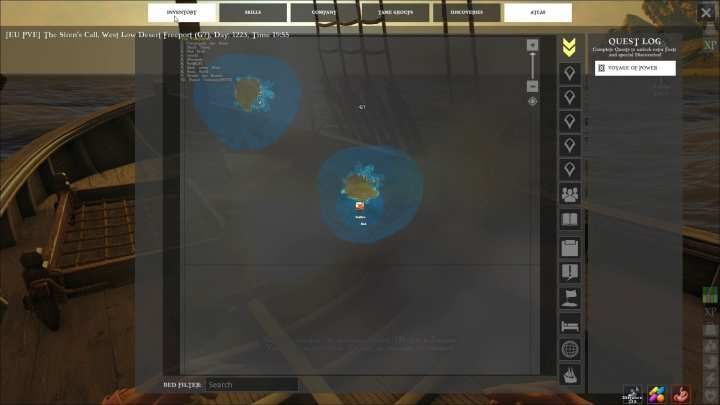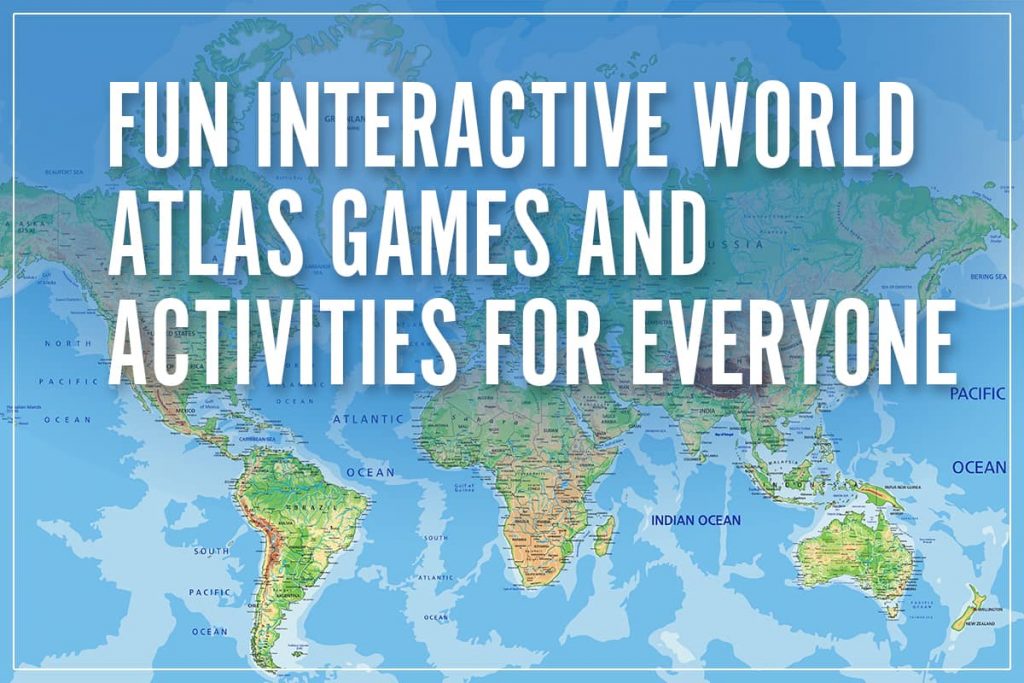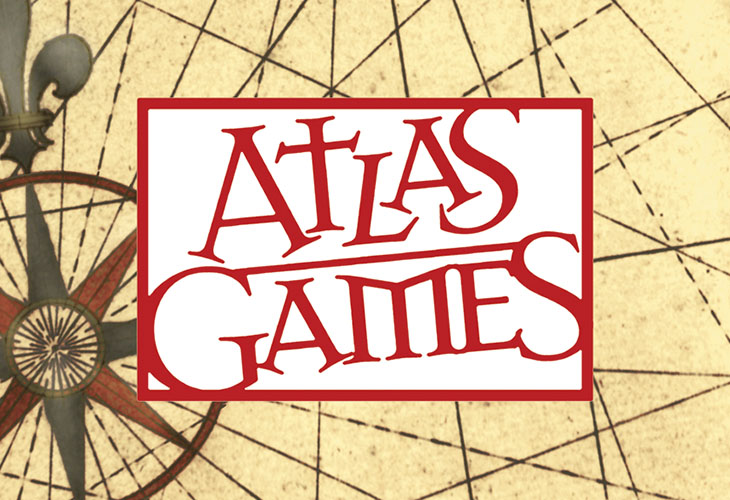Navigating The World Of Atlas Games: A Comprehensive Guide
Navigating the World of Atlas Games: A Comprehensive Guide
Related Articles: Navigating the World of Atlas Games: A Comprehensive Guide
Introduction
With enthusiasm, let’s navigate through the intriguing topic related to Navigating the World of Atlas Games: A Comprehensive Guide. Let’s weave interesting information and offer fresh perspectives to the readers.
Table of Content
Navigating the World of Atlas Games: A Comprehensive Guide

The term "atlas game" encompasses a diverse range of gaming experiences, each offering unique challenges and opportunities. While the term might sound straightforward, understanding its nuances and the various forms it takes requires a deeper dive into the intricacies of game design and player engagement.
Defining the "Atlas Game" Concept:
At its core, an "atlas game" refers to a game that emphasizes exploration, discovery, and the construction of a detailed map or world. This concept transcends specific genres and can be found in a variety of gaming formats, including:
- Sandbox Games: These games provide players with vast, open worlds to explore, often offering minimal restrictions or objectives. Players are free to chart their own course, discover hidden secrets, and build their own empires. Examples include "Minecraft," "Grand Theft Auto V," and "The Elder Scrolls V: Skyrim."
- Survival Games: These games challenge players to survive in harsh environments, requiring them to gather resources, craft tools, and build shelter. As players explore their surroundings, they gradually uncover the secrets of their world and the dangers it holds. Examples include "Rust," "Don’t Starve," and "Subnautica."
- Exploration Games: These games prioritize the discovery and exploration of new areas, often incorporating narrative elements and puzzles. Players are encouraged to delve into the game’s lore, uncover hidden stories, and piece together the world’s history. Examples include "The Legend of Zelda: Breath of the Wild," "Horizon Zero Dawn," and "Uncharted 4: A Thief’s End."
- Strategy Games: These games involve strategic planning and resource management, often focusing on territorial expansion and conquest. Players must carefully map out their strategies, build alliances, and conquer their opponents to achieve victory. Examples include "Civilization VI," "Age of Empires IV," and "Total War: Warhammer III."
Key Features of Atlas Games:
While these genres offer distinct gameplay experiences, they share common features that define the "atlas game" concept:
- Open Worlds: Atlas games typically feature expansive, open worlds that players can explore freely. These worlds are often procedurally generated, offering a sense of endless discovery and a unique experience each time.
- Exploration and Discovery: The core gameplay loop revolves around exploring the world, uncovering hidden secrets, and discovering new areas. Players are rewarded for their curiosity and exploration, often unlocking new content or gaining valuable resources.
- Map Building and Customization: Many atlas games allow players to create their own maps, either through in-game tools or external software. This customization allows players to shape the world to their liking and create unique experiences for themselves and others.
- Immersive Storytelling: Atlas games often feature rich narratives and lore that players can uncover through exploration, dialogue, and environmental storytelling. These narratives can be linear or open-ended, allowing players to shape their own interpretation of the world.
The Importance of Atlas Games:
The rise of atlas games reflects a growing desire for immersive, open-ended gaming experiences. These games offer players a sense of freedom, creativity, and discovery that traditional linear games often lack. By offering vast, open worlds to explore, they encourage players to think critically, solve problems, and engage with the game in unique and personal ways.
Benefits of Atlas Games:
- Enhanced Creativity and Problem-Solving: Atlas games encourage players to think creatively and solve problems in innovative ways. The open-ended nature of these games allows players to experiment with different strategies and approaches, fostering a sense of agency and accomplishment.
- Improved Spatial Reasoning: The emphasis on exploration and map building in atlas games helps players develop their spatial reasoning skills. By navigating complex environments and understanding the relationships between different locations, players improve their ability to visualize and understand spatial relationships.
- Increased Engagement and Immersion: The immersive nature of atlas games creates a sense of escapism and allows players to fully immerse themselves in the game world. The open-ended gameplay and rich narratives encourage players to invest time and effort in exploring the world and engaging with its inhabitants.
- Social Interaction and Collaboration: Many atlas games offer online multiplayer modes, allowing players to connect with others and share their experiences. This collaborative aspect of atlas games fosters a sense of community and encourages players to work together to achieve common goals.
FAQs: Delving Deeper into the Atlas Game Concept
Q: What are some examples of atlas games?
A: As mentioned earlier, the concept of atlas games transcends specific genres. Some notable examples include:
- Sandbox: Minecraft, Grand Theft Auto V, The Elder Scrolls V: Skyrim
- Survival: Rust, Don’t Starve, Subnautica
- Exploration: The Legend of Zelda: Breath of the Wild, Horizon Zero Dawn, Uncharted 4: A Thief’s End
- Strategy: Civilization VI, Age of Empires IV, Total War: Warhammer III
Q: What makes an atlas game different from a regular open-world game?
A: While all atlas games are open-world games, not all open-world games are atlas games. The key difference lies in the emphasis on exploration, discovery, and map building. Atlas games prioritize these elements, encouraging players to delve into the world and uncover its secrets, while other open-world games might focus more on combat, story progression, or other gameplay mechanics.
Q: How can I create my own atlas game?
A: Creating an atlas game requires a strong understanding of game design principles and a passion for world-building. You will need to consider the following:
- World Building: Define the size, shape, and geography of your world. Create a rich history, culture, and lore to populate your world.
- Gameplay Mechanics: Decide on the core gameplay loop of your game. Will players focus on exploration, survival, combat, or resource management?
- Map Design: Design a map that is both visually appealing and functional. Consider the layout of different regions, the placement of key landmarks, and the overall flow of the game world.
- Narrative and Storytelling: Create a compelling narrative that engages players and encourages them to explore the world.
- Technical Implementation: Choose the appropriate game engine and programming languages to bring your game to life.
Tips for Enjoying Atlas Games:
- Embrace the Open World: Don’t be afraid to explore the world at your own pace. Experiment with different strategies and approaches, and don’t be afraid to get lost in the vastness of the game world.
- Pay Attention to Details: Atlas games often hide secrets and clues in the environment. Take the time to examine your surroundings and interact with objects.
- Engage with the Narrative: Immerse yourself in the game’s story and lore. Pay attention to dialogue, environmental storytelling, and hidden clues to uncover the world’s secrets.
- Collaborate with Others: If the game allows for multiplayer, connect with other players and share your experiences. Collaborate on projects, explore the world together, and help each other overcome challenges.
- Don’t Be Afraid to Experiment: Atlas games offer endless possibilities for exploration and customization. Try different approaches, experiment with different builds, and find what works best for you.
Conclusion:
Atlas games offer a unique and rewarding gaming experience that encourages exploration, discovery, and creativity. By embracing the open-world concept and focusing on map building and world-building, these games provide players with a sense of freedom and immersion that is hard to find in traditional linear games. As the gaming industry continues to evolve, atlas games are poised to become an increasingly popular genre, offering players a chance to escape into vast, immersive worlds and shape their own destiny.







Closure
Thus, we hope this article has provided valuable insights into Navigating the World of Atlas Games: A Comprehensive Guide. We thank you for taking the time to read this article. See you in our next article!